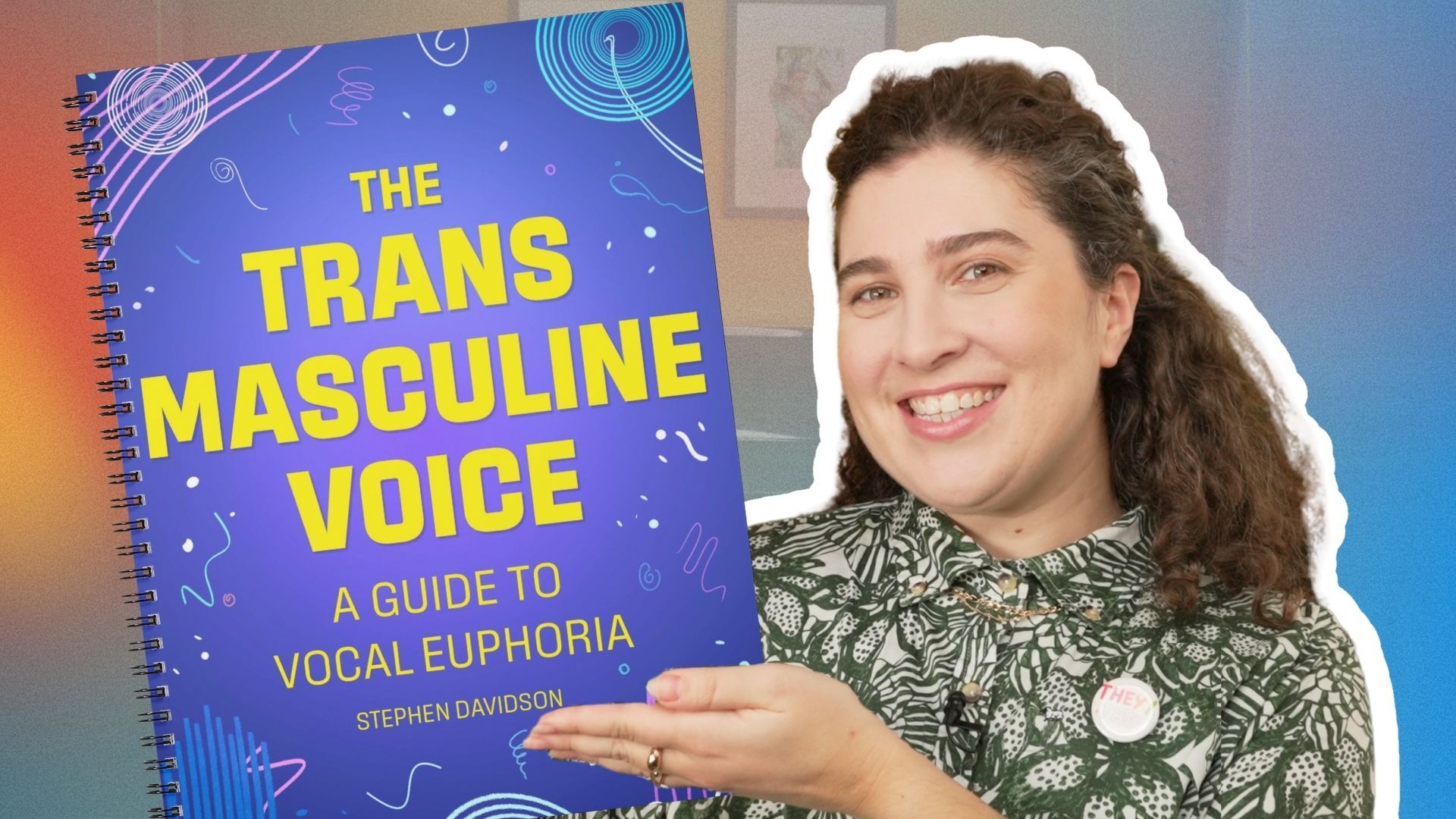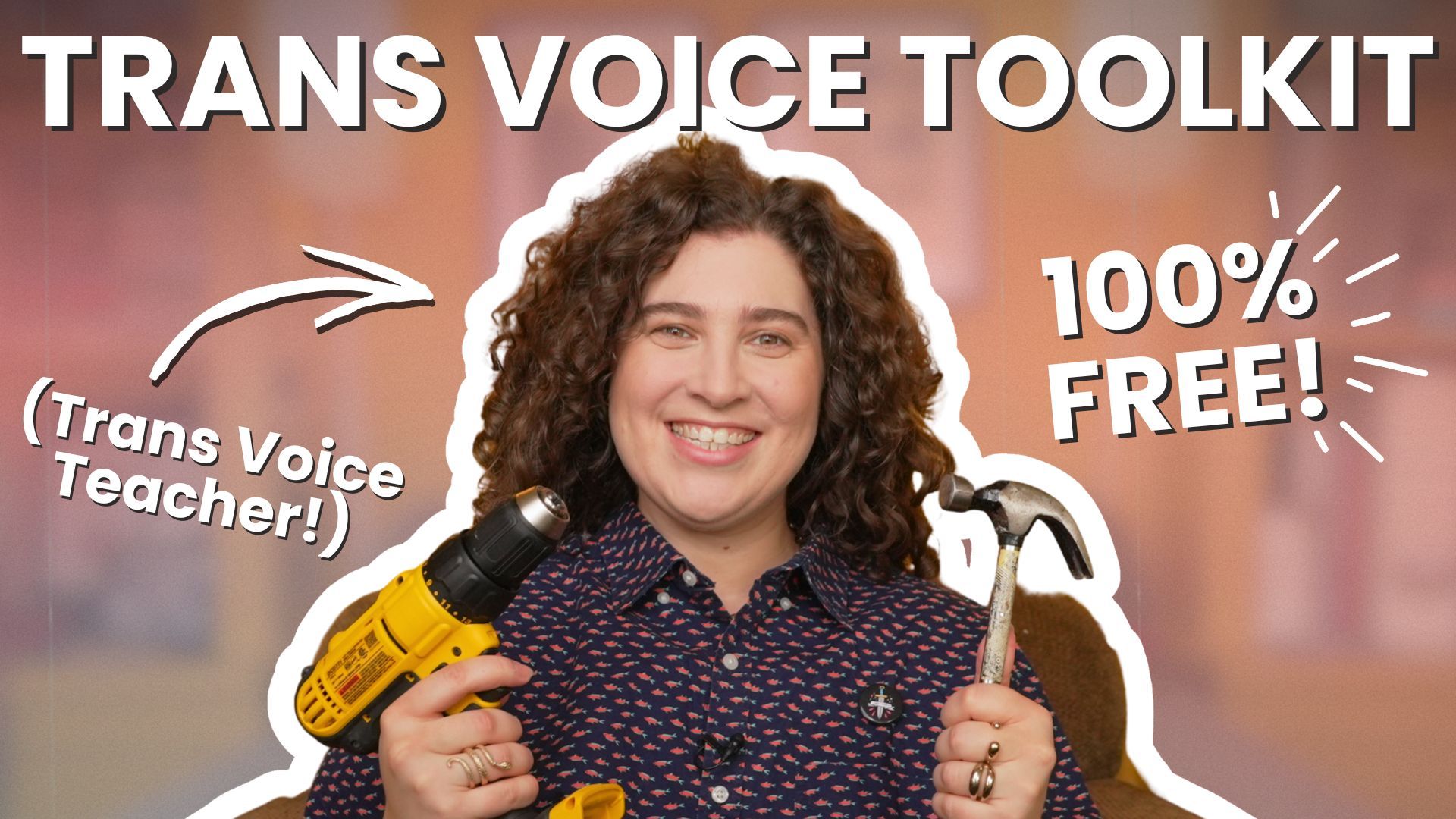What is the "T" voice?
Sep 26, 2022
This commenter on TikTok says, “So you know how “T voice” is something that is audible to other queer people? Could you explain what the features of that voice are?”

The “T voice” that this commenter is referring to is the trans-masculine specific voice that some people get as a result of taking HRT testosterone. This is a bit of a misnomer because literally every voice that has been altered by testosterone could be considered a “T voice”, but what this commenter is referring to is the voice that is unique to some trans men and transmasculine folks who take testosterone.
This voice is characterized by a thick vocal fold mass, which you can hear as a buzziness, a slight drop in pitch from that person’s baseline, and a relatively bright resonance. (Watch the video below to hear an example of a voice deepening on testosterone.)
This type of voice is more likely to result if a person starts taking testosterone later in life (like 30+) because later in life, it is more likely that the cartilage of the larynx will have ossified, which means it can’t grow with testosterone and create more space for the vocal folds to vibrate. This can limit how deep the pitch of the trans voice transition can go.
In addition, older folks will have more ingrained vocal habits, which means they’re more likely to maintain the height of their larynx while speaking instead of letting it drop to create a darker resonance because that’s how they’ve always spoken, and it’s more comfortable for them. So people who start trans masculine voice training or transgender voice therapy later in life may need to work a little extra to retrain those habits with targeted exercises.
I want to highlight that I said “more likely” because this is not always the case, and I definitely know some transgender individuals in their 30s and 40s who didn’t get a “T voice” when taking testosterone.
But I also want to add that this type of voice is by no means a negative thing. I have had many students intentionally wait to start testosterone voice changes because they wanted a clockably “trans” sounding voice, a proud marker of their trans masculine voice identity.
If you don’t like it for yourself, I have plenty of exercises on TikTok for voice masculinization that you can check out. I recommend starting here.
The “T voice” describes the trans masculine voice that can develop from testosterone voice changes — but it varies for everyone.
Here’s a quick summary of what affects voice deepening on testosterone:
-
Vocal Fold Mass: Testosterone thickens the vocal folds, creating that classic “buzziness” or deeper tone.
-
Age & Timing: Starting testosterone later in life can limit how low the voice drops due to ossified laryngeal cartilage.
-
Vocal Habits: Pre-existing speech patterns can maintain a brighter resonance unless retrained through FTM voice training or transgender voice therapy.
-
Individual Variation: Not everyone develops a “T voice,” and that’s completely normal!
💡 Tip: Whether you love your unique “T voice” or want guidance shaping your sound, trans voice training can help you feel confident and in control of your voice transition!
If you want some FREE trans vocal coaching, you can join my next webinar for the basics of how to change the gender of your voice, without needing hormones or surgery!
Want weekly tips, resources, and insights on trans voice training? Sign up for my newsletter and get the latest content delivered straight to your inbox. It's free!









